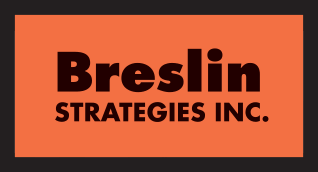Friendship Can’t Matter
 Promoting Accountability in the Field
Promoting Accountability in the Field
Maintaining authentic and caring friendships on the jobsite has inherent challenges when you’re the leader. And without clear expectations, healthy boundaries, and fair treatment, you can invite chaos, misunderstandings and resentment.
For foremen and superintendents it is a critical line to be established and adhered to in order to build accountability.
Friendships in the workplace are common. In fact, it is a big part of what makes work enjoyable, and often helps a team work well together. People become friends when they share a common focus, go through the same experiences together and exert a lot of effort to get the job done right. Under such circumstances, friendship is a positive and appropriate outcome. It is not uncommon at all that people at all different levels become friendly and even informal with each other in today’s workplace.
But when a foreman (or even you) becomes a leader, whether you’re in the office or on the jobsite, a number of things change. And the main challenge is that the leader has to engage in behaviors that are uncomfortable. These include:
- Holding people accountable
- Driving for results
- Coaching for performance
- Discipline for problematic issues
Calibrating the balance between “Boss” and “Friend” should be clear and deliberate, and NEVER situational. Leaders can’t send mixed messages. And employees can’t be allowed to make assumptions that transcend professional boundaries.
Here are five rules that every leader should live by when it comes to navigating friendship issues in the workplace:
- Be clear that the role at work is as leader/manager first, not a friend. If the line gets blurry between these, almost all employees will expect to be treated as friends first — and that can lead to lower performance and employees expecting preferential treatment. Their deferral to this assumption – that you are their friend first – is your fault, not theirs. If they are confused, it is because of your inconsistency, favoritism, informal manner or something similar.
- Treat everyone the same – and more so your workplace friends. I have seen it many times in many workplaces. When someone thinks they are a “friend first” they will play their friend card. Directly or indirectly asking or expecting different treatment. More flexibility. Lesser expectations. Longer deadlines. Attendance…tardiness… personal issues… Don’t do it. Leaders will often accommodate “the one” because they want to be liked. In the process, they will lose “the many” others because they traded being liked for respect. Having favorites breeds resentment, promotes internal politics and makes a leader look weak.
- Don’t take on everyone’s personal problems. While it can feel very useful and helpful, leaders have to draw healthy limits on personal interaction or intervention with their people. I learned this the hard way. By trying to help people out – by getting too far into their personal shit and thus cutting them slack due to their personal issues – I ended up with a bunch of other people pissed off and questioning my leadership. Leading as a Coach is different than being a counselor or a babysitter.
- Be compassionate and understanding. This is different from being familiar. This is about you caring enough about someone else for them to feel it. I am responsible for a lot of people’s work happiness, growth and fulfillment. I am not a good leader unless this comes first. Being sincere and genuine goes a long, long way with most people. Don’t go so far one way that you lose that real connection with your people. If they know you care, they will give their maximum discretionary effort. But they should not assume this translates to an easier path or variable treatment.
- Never allow someone to trade on friendship in a work relationship. If someone is using your sense of obligation as a friend to create leverage or a favorable outcome (for them) on the job, it’s a sure sign that you have let the situation go too far. Time to step in and act as a leader first, and a friend second. The re-calibration will be awkward or maybe even unpleasant, but the rest of you team is waiting for you to stop being lame.
Friends at work are not supposed to get in the way of creating the best product or bringing out the best performance possible from your team. Friends at work are not supposed to create any form of drama or politics, period. If people are truly friends with their supervisor, then they will work to earn more respect and more consideration – and never take it for granted. Leadership behaviors include caring, service, connection and empathy. And striking the right balance will always result in trust, loyalty and buy-in from a crew, team or organization.
Looking for a formal coaching program for your foremen, superintendent, and other field leaders? Check out these foreman training resources:
Five Minute Foreman Book: https://breslin.biz/store/five-minute-foreman/
Professional Construction Leader (PCL) Video Coaching Series: https://breslin.biz/pcl
Want to hear more from Mark – check out his YouTube channel & why Coaching The Next Generation of Field Leaders is critical for construction industry and building accountability.
#FMF #constructionforemantraining #pcl
